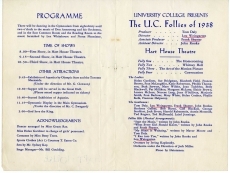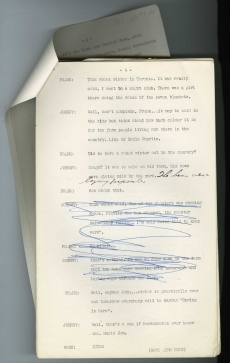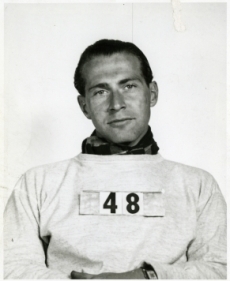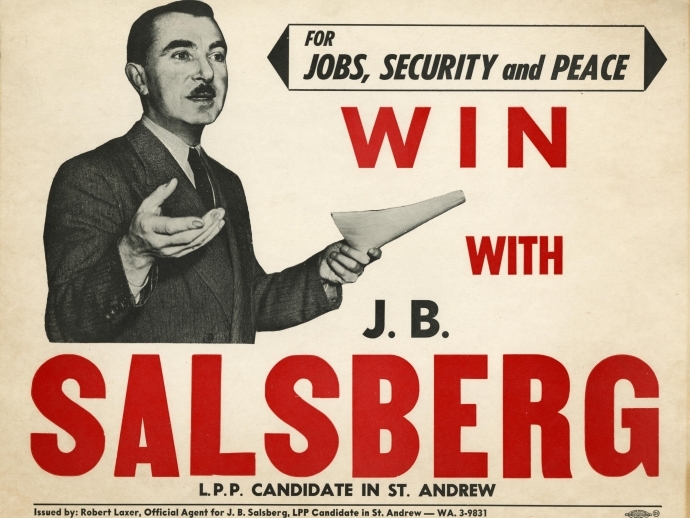Harbord Collegiate Celebrates 120 Years with Wayne and Shuster
On April 27, Heritage Toronto unveiled a legacy plaque at the 120th anniversary celebrations of Harbord Collegiate in Toronto. The plaque specifically honours comedians Johnny Wayne and Frank Shuster, who met in 1930 in their Grade 10 class at Harbord and then went on to study English literature at the University of Toronto.
Johnny Wayne (1918-1990) was born Louis Weingarten in Toronto to Sarah and Charles Byron Weingarten. He was married to Beatrice Lokash and they had three children: Michael, Jamie and Brian. Frank Shuster (1916-2002) was born to Bess and Jack Shuster in Toronto but also lived in Niagara Falls where Jack Shuster ran the local Colonial Theatre. Married in 1947, Frank and his wife Ruth Burstyn had two children: Rosalind and Steve. Notably, Frank's cousin Joe Shuster was one of the creators behind the famous Superman comic character.
Both Wayne and Shuster were active in dramatics as high school students, and later as university students with the Beta Sigma Rho fraternity. In 1941, while still in school, Wayne and Shuster created their first show for CFRB radio, titled Wife Preservers. It was followed shortly thereafter by their hit comedy show, The Wayne and Shuster Show, on CBC's Trans-Canada Network. In 1942, the two men joined the Canadian infantry and brought their Army Show to different military bases across Canada. They took the show to Normandy after D-Day and wrote a 52 week series for veterans.
Following the war, the Wayne and Shuster Show returned to CBC radio and went on to become a much beloved program, earning the men a national audience. The half-hour radio program was broadcast live at 9:30pm on Thursday evenings. The show often featured comedic spoofs on classical plays and literature and was therefore described as "literary slapstick." Wayne and Shuster performed alongside co-stars Eric Christmas, Terry Dale, Herb May and several other guest comedians. The show was produced by Jackie Rae and Samuel Hershenhoren provided the music. The radio program ran until 1954, at which point Wayne and Shuster began to produce hour-long specials on CBC television. In 1958, they appeared on the Ed Sullivan Show in the United States and in fact, became a regular feature, breaking the record for the number of appearances by any one guest. In 1999, Wayne and Shuster were inducted into Canada's Walk of Fame.
Wayne and Shuster make an appearance in a number of the OJA's collections. A small selection of radio scripts from the Wayne and Shuster show are contained within the Morris Norman fonds. The pair are also found in the Beta Sigma Rho Fraternity fonds, the Al Gilbert fonds and a number of smaller family collections.




